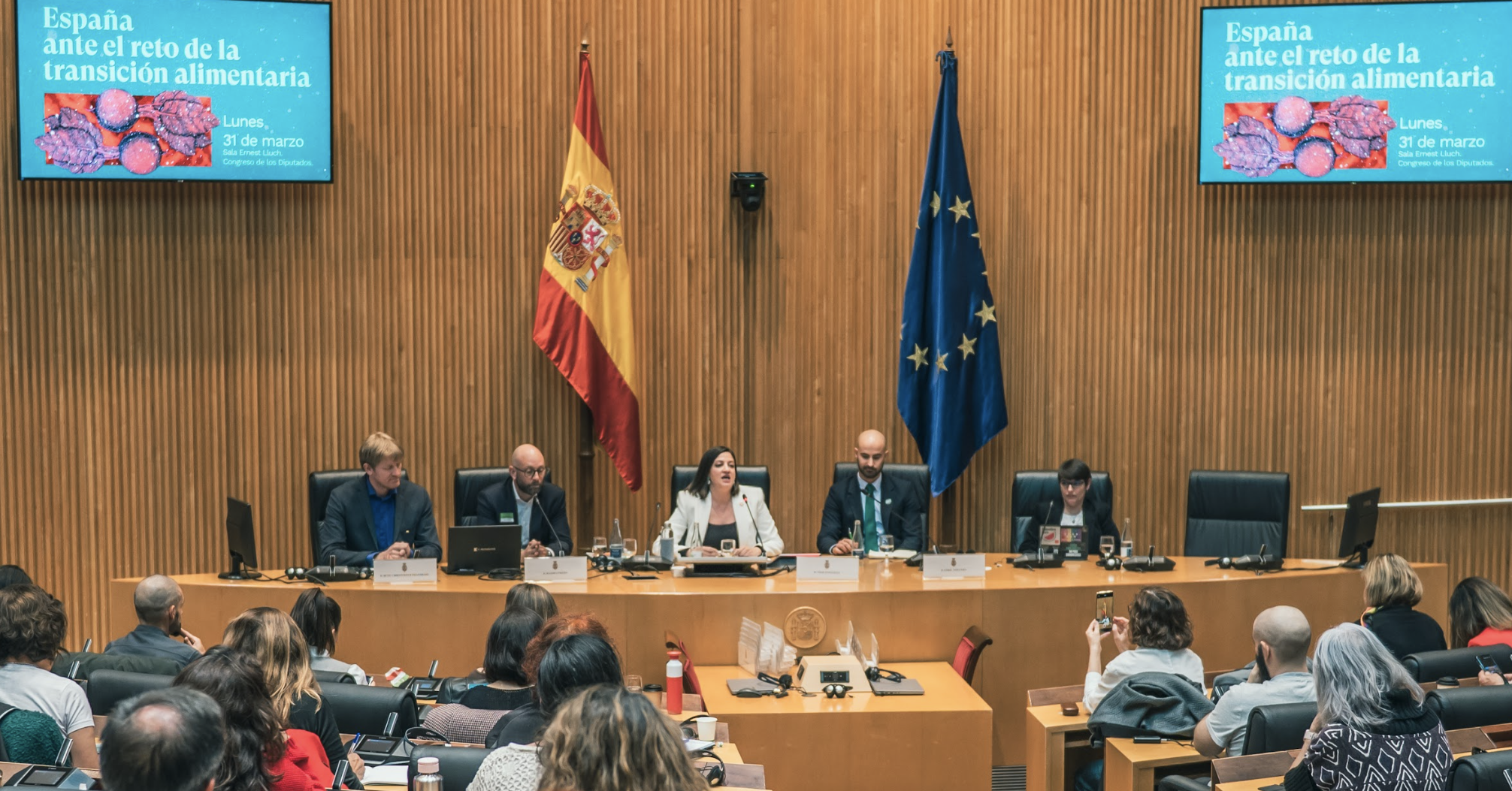Pressing challenges in the seafood industry, including labor rights, climate change, and sustainability, took center stage at the 2024 edition of the Seafood Expo Global, held in Barcelona from April 23rd to 25th. With a record-breaking attendance of over 35,000 professionals from around the globe, this year's conference marked its largest edition ever, providing a platform for industry leaders to explore the latest trends and innovations.
Representatives from Aquatic Life Institute (ALI), Christine Xu, Head of Fisheries Welfare, and Cecilia Valenza, Corporate Engagement Lead, attended and presented at the conference.
Aquatic animal welfare was incorporated into the official program for the first time, in a panel hosted by the Global Dialogue on Seafood Traceability (GDST). Christine Xu spoke about integrating animal welfare considerations into seafood traceability, signaling a shift towards acknowledging the importance of this issue within the industry.
ALI main goals for the conference
- Attend panels and the exhibition hall to engage industry representatives and foster relationships
- Speak and socialize the topic of aquatic animal welfare among the audience
- Conduct one-on-one conversations with key stakeholders to advance the welfare agenda
- Get an insider view on how the industry is talking about it, identify opportunities and trends and use insights to improve our approach and strategies
Main Topics Discussed:
- Human and Labor Rights in the Fishing Sector
- Sustainability and Responsible Sourcing in the Seafood Sector
- Transparency and Traceability in the Seafood Industry
- Climate Change and Blue Foods
- Feed in Aquaculture
- Fish Consumption and Human Health
General Impressions
- Awareness of aquatic animal welfare is much more prominent among the European crowd in Barcelona compared to the North American crowd in Seafood Expo North America (held in Boston in early March). The topic was given space in the official program, with Christine Xu, ALI's Head of Fisheries Welfare, speaking on a panel hosted by GDST. It was also mentioned in conversations in other panels (however, restricted to aquaculture) and among other participants.
- Again, workers' rights and climate change emerged as pressing concerns, present in more than one panel
- The need to take a more holistic approach to sustainability, considering issues such as environmental, social and economic aspects, as well as the importance of decarbonisation in the seafood sector, was reiterated
- Insect protein was presented as a promising and more sustainable alternative for aquaculture feed, offering nutritional value and environmental friendliness, which may be of concern from an animal welfare perspective.
- The Marine Stewardship Council (MSC) hosted a session featuring GlobeScan, during which they shared the findings from several consumer insight polls to illuminate the factors influencing seafood purchasing decisions. An intriguing revelation emerged: the same factors – price, environmental considerations, and health benefits from fish – can either attract or deter consumers from eating seafood. This finding is noteworthy for our movement. It would be prudent to brainstorm strategic messaging around seafood that leverages these factors to dissuade consumers from choosing seafood options.
If you want to learn more, check out this blog post. We have also prepared a more comprehensive report that goes into more detail on the main topics discussed at the conference, and we are happy to share it with anyone interested in the topic. Please don't hesitate to contact us!



